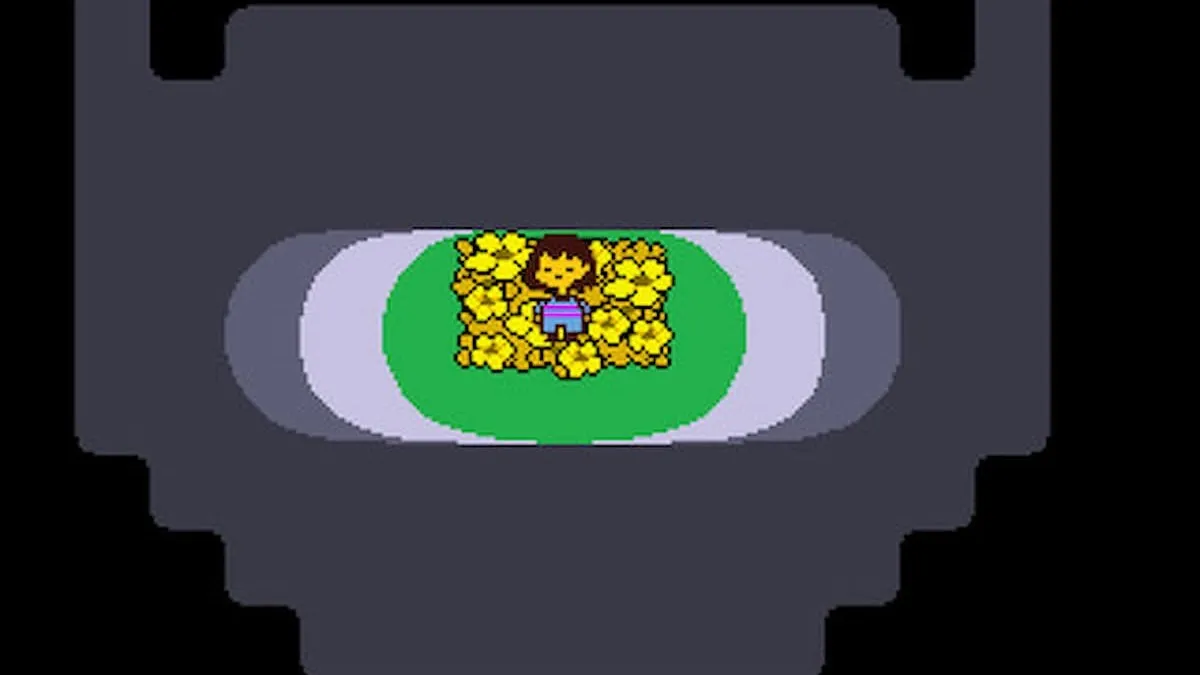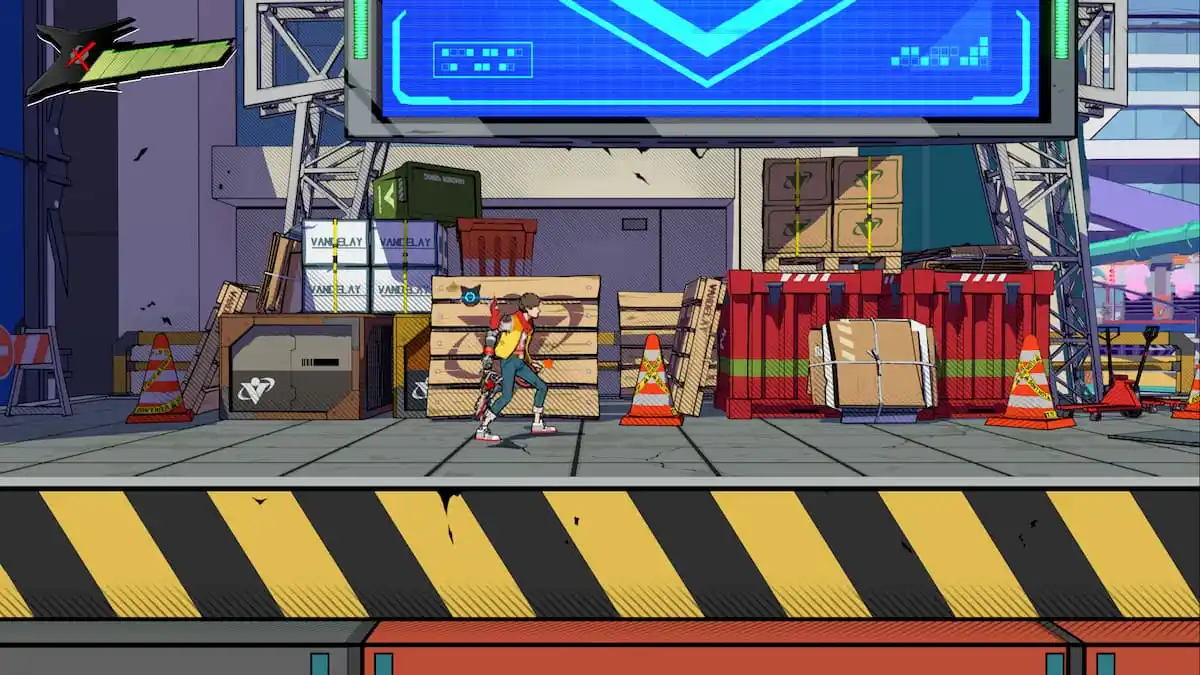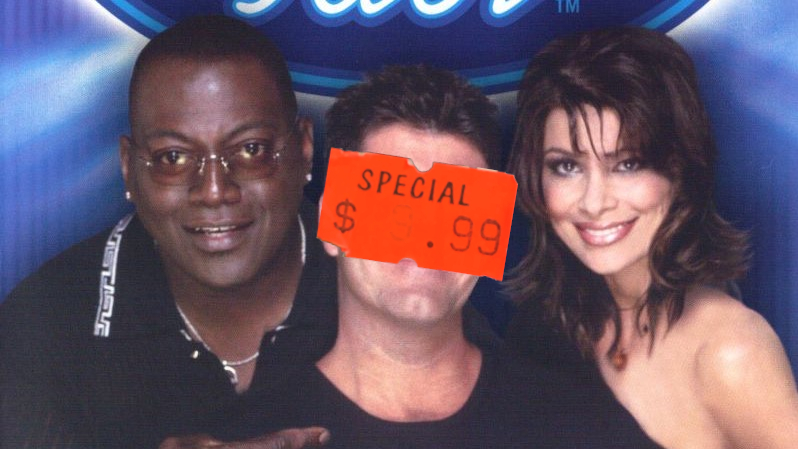You know what makes a lot of money? Music games. Even in 2009, a year in which music games saw a 46% drop in sales from 2008, DJ Hero became the highest-grossing new IP across all genres. It’s a game that was being called a failure in the weeks after its release, and some today even suggest that its sales have been modest. Yet for the companies that make music games, the cash continues to roll in.
The obvious question is “Where do music games go from here?”
To get an answer, I went to an expert on the subject: NYU professor Samuel Howard-Spink, who is heading up an initiative called the NYU Music Video Games Research Project. We had the opportunity to chat about nearly everything about music games, including the future of peripheral-based games, titles like Rez and PaRappa the Rapper, and a Guitar Hero/Rock Band battle to the death.
So, what is the NYU Music Video Games Research Project? “The NYU-MVGRP,” Howard-Spink says, “was started as a way of getting the word out around the university and further afield that the convergence of music and gaming deserves closer attention. I began working in NYU’s Music Business Program in 2007, and came in excited about the opportunities gaming and mobile apps offer music creators and publishers. There are a handful of gaming related initiatives around NYU dealing with interactive design and esthetics, or gaming and learning, but nothing dedicated to the convergence of musical and gaming cultures and businesses.”
“Once I started, it I began to get attention from a variety of places, mainly professors whose students are asking for more classes dealing with these emerging opportunities. In the past semester a group of undergrads has formed the NYU Game Audio and Music Association (NGAMA) and they are now driving student activities. My own department, Music and Performance Arts Professions in the Steinhardt School, is developing game-related courses in its music business, music technology, and film composition programs. It’s very early days but my great hope is for our graduates to be leaders the field.”

I’m sure you’re all thinking about clicking that “new tab” button and sending in an application to NYU, but stick with me here. I asked Professor Howard-Spink what, exactly, these groups hope to find, both in terms of the oft-discussed monetary side, and also in terms of the cultural importance of these plastic-instrument games.
“It is rapidly becoming the case that there aren’t really pure music “consumers” anymore, in the way that we were at some point all consumers of pieces of plastic embedded with a recording, or as radio listeners where we consumed music in exchange for our attention to be sold to advertisers. People who value music in 2010 are “users” much more than they are consumers. In fact a recent survey shows that American kids spend 7.5 hours a day multitasking with media, most of which integrates music of some kind.”
“So I don’t see games as having the power to completely change music purchasing, rather they will expand economic opportunities for music creators and fans in ways we’re just beginning to understand. Games are already expanding the variety of music people are exposed to and are therefore likely to want to purchase and own, as well as the places and circumstances under which this mutual reinforcement takes place.”
When a JRPG leads me to purchase hours upon hours of Romantic piano, it’s hard to argue with Professor Howard-Spink on this point. Indeed, I know that I have personally expanded the types of music that I listen to based solely on games that have music in them: not only music games. But if consumers are being introduced to so much new music, why are CD sales still down?
“On the supply side, games and interactive media in general are definitely increasing the opportunities for music creators to make their livings licensing works to developers. Everyone knows CD sales are down from their historic peak around 2000, but what is often forgotten is that music publishing revenues and distributions to composers and songwriters are up everywhere because of all the new ways music is used and paid for in new media. Music is more important and enjoyed by more people than ever before, but the CD is not, and they’re not the same thing. The recording business will always stick around, it will just be less dominant vis-à-vis other music economies.”

I also wanted to know about this idea of the cultural importance of music games. Just how closely tied are games and culture, and how does music fit into all of this?
“Videogames and music have always had a close relationship, in much the same way cinema and music have. In both of these entertainment forms the visual elements tend to overwhelm the musical, but as a game like Guitar Hero shows, this is not always a given. Original scores and compositions for major games are decent sellers in their own right, and performances such as Video Games Live are driving teenage boys to sell out orchestral concerts. Games that base their play mechanics on music per se are more rare, but anyone who has played PaRappa the Rapper or Rez understands the attraction. I think Chime is a beautiful example of this, and at the same time it’s pioneering socially conscious gaming.”
“As for licensed soundtracks, Grand Theft Auto: Vice City broke the mold on integrating popular music into the gaming experience, along with the big sports and x-games sims. The “rhythm-action” genre represented by Guitar Hero and Rock Band has been as culturally significant as they have been commercial successes: Guitar Hero 3 was the first game to generate $1b in sales revenues, and in my humble opinion the genre itself has helped to save rock’n’roll from being fully Nickelbacked or Maroon 5-ed into a coma. The games have certainly increased the number of young people interested in pursuing musical activities in many ways; just ask any guitar instructor or owner of a musical instrument store. And when South Park bases an entire episode on Guitar Hero, it’s clear we are dealing with a genuine pop culture phenomenon.
When it comes to the cultural significance of music games, I was also interested in getting an educator’s opinion on the use of music games in education, both in terms of getting students interested in learning an instrument, and the possibility that music games can lead to a deeper understanding and appreciation of music history.
“While there are now many studies showing links between gaming and learning — for kids and adults — to date there have not been many rigorous examinations of their relationship to music education, although there is plenty of anecdotal evidence of their mutual reinforcement. Remember that musical training isn’t solely about scales and correct finger placement; rhythm, song structure, key changes, lyrics, genre styles, etc. are all elements of a musical education, and playing along with songs on Rock Band absolutely aids in the development of the awareness of these elements.”
“Of course, this just happens to be what we have at our disposal today. If you look at the YouRock Guitar, which has strings and is also designed for play with Guitar Hero and Rock Band, you can see the outline of a possible future for music gaming that places greater emphasis on musicianship.”

There was plenty to ask about DJ Hero, as well. Now that we’ve passed over into 2010, it’s hard to get a straight answer about just how well the game did. Activision says that it was the highest-grossing new IP in 2010, yet others suggest that it didn’t sell very well. So, what’s the deal?
“DJ Hero is a fascinating case study, and a genuinely innovative game. It was framed as a “failure” when it didn’t meet Guitar Hero-level sales in its first couple of months on the market, which just goes to show how narrowly success is defined by industry “analysts.” Consider this: in January Activision put out a press release saying that DJ Hero was “the highest grossing new IP (intellectual property) in 2009 in the US and Europe.” The release didn’t provide a hard number, so there are a couple of ways to look at this. Either DJ Hero has been much more successful than was suggested by its early sales figures, or so little new IP is produced these days (compared to the recycling of pre-existing IPs) that a relative low-seller like DJ Hero can claim that title.”
“Other factors to consider are that every kid in every part of America knows how to swing a guitar around rock-star style, but DJ-ing and turntablism are strictly speaking urban forms that have less universal appeal. Plus of course the game was released into a truly awful economic and consumer spending environment with a high price tag. I’m encouraged that Activision has already announced DJ Hero 2 for this year.”
I think we can all agree, at the very least, the DJ Hero is a breath of fresh air in a sector of the industry that is, at this point, largely doing the same thing over and over again. One could argue that consumers agree, as sales of The Beatles: Rock Band weren’t particularly amazing. Professor Howard-Spink had some thoughts about the potential stagnancy of music games.
“The genre has lost its early “wow” factor, but I see many reasons to be optimistic. The fact that $60 GH expansion packs are not selling as well as the original titles does not mean the music game is dead, it means the players of these games are making more careful decisions about what they buy.”
“And they are buying, especially DLC tracks, packs and albums, some 60m to Rock Band alone according to Harmonix. They don’t all need brand new plastic instruments to play now, so of course overall revenues from the games are going to be down. I think there may be some legs in band-specific releases depending on the acts. For example, if Jimmy Page ever comes around on this issue, I’m pretty sure a Led Zepellin Guitar Hero would blow away The Beatles: Rock Band in terms of sales.”

“The true innovation in the music game space is Harmonix’s Rock Band Network. In fact, Rock Band in general has pursued a much more sustainable “platform” model than Activision’s major releases every few months. Activision has acknowledged that it saturated the market in 2009 with six separate GH-branded releases, and in 2010 is restricting itself to Guitar Hero 6 and DJ Hero 2. Writing off music games at this point is not dissimilar to the “set-‘em-up and knock-‘em-down” mentality characteristic of the pop music world.”
Ah, yes, Rock Band Network. Professional song-creation tools for bands and artists, a new way to distribute for smaller acts, and the potential for limitless expansion of the Rock Band platform. As a concept, it sounds amazing. But will it work?
“The democratization of access to Rock Band’s distribution platform is highly significant, much more so than the lower sales of new Guitar Hero full-game releases. I’m not convinced that Rock Band Network will be a raging success out of the gate, but over time I expect it to become a very important sales and promotion outlet for indie musicians and bands.”
“At Midem in January, a Harmonix exec told label heads that it was a “no-brainer” to release a DLC version of any new album they’re putting out to capture that group of eager fans. Networked information economic models undermine the rationale for all-or-nothing hit-seeking and million-sellers, and expand opportunities for new entrants. This is a huge opportunity for indie labels and acts and will live or die according to their enthusiasm, whereas the major labels (with the notable exception of Warner Music Group) prefer the hit-based Activision model and hence we get Guitar Hero: Green Day.”
“It’s good for every stakeholder in this field that there is some healthy competition between the two formats that goes beyond dueling tracklists.”

Personally, my main concern with the growth of peripheral-based rhythm games is that we’ll begin to see fewer and fewer non-peripheral music games, such as Amplitude, PaRappa the Rapper, and even games like Audiosurf. Even the PSP release Rock Band: Unplugged arrived to little fanfare. Is there still room for such games in an industry so focused on high-profile, peripheral-based releases?
“Certainly,” Professor Howard-Spink says in response to this question. “With the ways that gaming is growing, especially in mobile applications, I’m pretty sure that we’ve only scratched the surface in terms of the ways that music and games are going to hybridize. Word is that it’s the gaming and music businesses [that are] most bullish on the iPad.”
“Besides, innovation without the addition of new peripherals within existing games is still possible. You can see this is the ways that Harmonix and Activision have added new functionalities to their existing hardware, for example the inclusion of extra notes during a long sustain, or the open E string on the bass. The Beatles game took one controller and managed to turn it into three-part harmonies – that’s an amazing innovation that doesn’t hugely expand the number or type of peripherals needed.”
Then there’s a whole separate sector of music that deserves attention: the fantastic compositions featured in games, both modern and retro. How many readers of this site, for instance, have game music loaded onto their iPods? How many videogame composers appear in the top ten of our Last.fm pages? Professor Howard-Spink discussed this with me as well.
“As a researcher and teacher in this area, I find it useful to break down music and gaming into four (sometimes overlapping) categories: the original soundtrack, the licensed soundtrack, rhythm-action, and emergent or generative (in which the actions of the player determine the music generated, as in Rez, Lumines or Chime). As far as orchestral OSTs go my recent favorites have included Dead Space, Batman: Arkham Asylum, Assassin’s Creed 2 and BioShock, which has what I consider to be the best sound design and musical integration of any game in the past five years.”
“Licensed soundtracks I’ve enjoyed include GTA4 – 18 radio stations and 200 hours of material is simply amazing – and the Rockabilly tracks from WET. BioShock 2’s licensed soundtrack does an amazing job of using songs from the 1930s and ‘40s to creep the hell out of me. And I bought a London Symphony Orchestra recording of Beethoven’s Ode To Joy after playing nothing but Peggle for two weeks straight last year.”

Then, just to throw some fuel on a fire that still rages, I had to ask: Rock Band or Guitar Hero?
“As a gamer, I prefer Guitar Hero because it’s geared more towards high-speed shredding and employs all the little reward mechanisms that keep a gamer coming back: incremental improvements in scores, note streaks and percentage breakdowns, for example. I prefer the hardware too, the smaller buttons allow for more speed than the fatter ones on Rock Band, plus I like the click in the strum bar. Rock Band is the better product from a musical and social gaming perspective.”
This seems to disagree with a lot of people recently, who have come to loathe both Activision and the Guitar Hero franchise, especially after the recent closure of Red Octane, the publisher of the original Guitar Hero.
“It’s a little too easy to frame Activision as the corporate baddie and Harmonix as the scrappy indie that could once you remember that it’s owned by Viacom. Last year I think I played Guitar Hero: Metallica more than any other game — I’d never even liked Metallica until I played it (Lars and Napster, long story), and the tracks from supporting acts are outstanding — and now I listen to and buy a lot more thrash and death metal than I did a couple of years ago.”
And will there be an eventual winner in this war?
“If I had to make a bet, I think that in the medium to long term the Rock Band platform will win out over Activision’s half-dozen disc releases a year.”
If all of this talk about games, music, and learnin’ has you interested, you can learn more about NYU’s games-related offerings at the NYU Game Center and the NYU Music Video Games Research Project blog.




